Related Research Articles
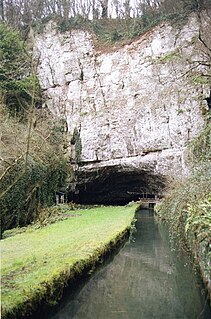
Wookey Hole Caves are a series of limestone caverns, a show cave and tourist attraction in the village of Wookey Hole on the southern edge of the Mendip Hills near Wells in Somerset, England. The River Axe flows through the cave. It is a Site of Special Scientific Interest (SSSI) for both biological and geological reasons. Wookey Hole cave is a "solutional cave", one that is formed by a process of weathering in which the natural acid in groundwater dissolves the rocks. Some water originates as rain that flows into streams on impervious rocks on the plateau before sinking at the limestone boundary into cave systems such as Swildon's Hole, Eastwater Cavern and St Cuthbert's Swallet; the rest is rain that percolates directly through the limestone. The temperature in the caves is a constant 11 °C (52 °F).
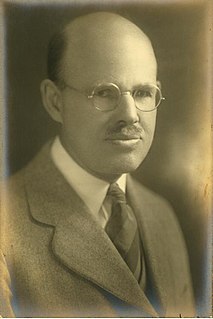
Ellsworth Huntington was a professor of geography at Yale University during the early 20th century, known for his studies on the controversial science of, environmental determinism/climatic determinism, economic growth and economic geography. He served as President of the Ecological Society of America in 1917, the Association of American Geographers in 1923 and President of the Board of Directors of the American Eugenics Society from 1934 to 1938.
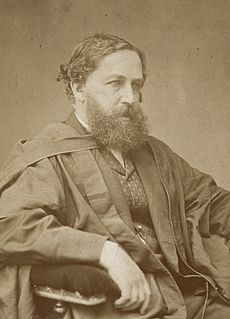
William Stanley Jevons FRS was an English economist and logician.
Social history, often called the new social history, is a field of history that looks at the lived experience of the past. In its "golden age" it was a major growth field in the 1960s and 1970s among scholars, and still is well represented in history departments in Britain, Canada, France, Germany, and the United States. In the two decades from 1975 to 1995, the proportion of professors of history in American universities identifying with social history rose from 31% to 41%, while the proportion of political historians fell from 40% to 30%. In the history departments of British and Irish universities in 2014, of the 3410 faculty members reporting, 878 (26%) identified themselves with social history while political history came next with 841 (25%).

The Nonpartisan League (NPL) was a political organization founded in 1915 in the United States by Arthur C. Townley, former organizer for the Socialist Party of America. On behalf of small farmers and merchants, the Nonpartisan League advocated state control of mills, grain elevators, banks and other farm-related industries in order to reduce the power of corporate political interests from Minneapolis, Minnesota and Chicago, Illinois.

Richard Grenville-Temple, 2nd Earl Temple, was a British politician. He is best known for his association with his brother-in-law William Pitt who he served with in government during Britain's participation in the Seven Years War between 1756 and 1761. He resigned along with Pitt in protest at the cabinet's failure to declare war on Spain.

John Lubbock, 1st Baron Avebury, 4th Baronet,, known as Sir John Lubbock, 4th Baronet from 1865 until 1900, was an English banker, Liberal politician, philanthropist, scientist and polymath. Lubbock worked in his family company as a banker but made significant contributions in archaeology, ethnography, and several branches of biology. He coined the terms "Paleolithic" and "Neolithic" to denote the Old and New Stone Ages, respectively. He helped establish archaeology as a scientific discipline, and was also influential in nineteenth-century debates concerning evolutionary theory. He introduced the first law for the protection of the UK's archaeological and architectural heritage. He was also a founding member of the X Club.

A dungeon is a room or cell in which prisoners are held, especially underground. Dungeons are generally associated with medieval castles, though their association with torture probably belongs more to the Renaissance period. An oubliette or bottle dungeon is a basement room which is accessible only from a hatch or hole in a high ceiling; however, the description of these basement rooms as "dungeons" stems from the romanticised castle studies of the 19th century. There is no evidence to indicate that prisoners were really lowered through the angstloch into the dungeon using a rope or rope ladder as these 19th century accounts suggest. Archaeological finds, by contrast, indicate the use of these basement spaces as store rooms.

Jean Raphaël Adrien René Viviani was a French politician of the Third Republic, who served as Prime Minister for the first year of World War I. He was born in Sidi Bel Abbès, in French Algeria. In France he sought to protect the rights of socialists and trade union workers.
The year 1864 in science and technology included many events, some of which are listed here.

Charles James Booth was a British shipowner, social researcher and reformer, best known for his innovative philanthropic studies on working-class life in London towards the end of the 19th century.

The United States Chamber of Commerce (USCC) is a business-oriented American lobbying group.
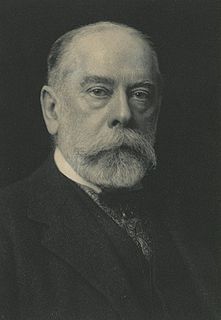
Edwin Lawrence Godkin was an Irish-born American journalist and newspaper editor. He founded The Nation and was the editor-in-chief of the New York Evening Post from 1883 to 1899.

Muhammad Rashid Rida was an early Islamic reformer, whose ideas would later influence 20th-century Islamist thinkers in developing a political philosophy of an "Islamic state". Rida is said to have been one of the most influential and controversial scholars of his generation and was deeply influenced by the early Salafi Movement and the movement for Islamic Modernism founded in Egypt by Muhammad Abduh.
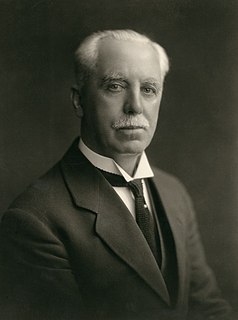
Sir David John Gordon was an Australian politician. He was a member of the Australian House of Representatives from 1911 to 1913 and a member of the South Australian Legislative Council from 1913 to 1944. He was briefly Minister of Education and Minister of Repatriation under Archibald Peake in 1917.

The Canterbury Provincial Council Buildings were the buildings of the Canterbury Provincial Council that administered the Canterbury Province from 1853 until the abolition of provincial government in 1876. The buildings are the only purpose-built provincial government buildings in New Zealand still in existence. The buildings were substantially damaged in the February 2011 Christchurch earthquake, and partially demolished by the Christchurch City Council.
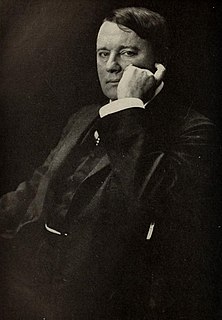
Alfred Charles William Harmsworth, 1st Viscount Northcliffe, was a British newspaper and publishing magnate. As owner of the Daily Mail and the Daily Mirror, he was an early developer of popular journalism, and he exercised vast influence over British popular opinion during the Edwardian era. Lord Beaverbrook said he was "the greatest figure who ever strode down Fleet Street." About the beginning of the 20th century there were increasing attempts to develop popular journalism intended for the working class and tending to emphasize sensational topics. Harmsworth was the main innovator.
Thomas Telford Irvin served as Georgia's Commissioner of Agriculture from 1969 until January 2011. Irvin holds a record as the longest-serving Commissioner of Agriculture in the United States, and the longest-serving statewide official in Georgia.
The Rural Party was a political party in the United Kingdom that was founded in 1907 as the Independent Agriculture Parliamentary Party, and revived in 1923 as the Rural Party.
Sir Alfred Herbert Henry Matthews was an English agriculturalist and politician.
References
- 1 2 Dictionary of Political Economy, vol. 1, edited by R. H. Inglis Palgrave (London, 1915), pp. 257-258.
- ↑ "Agriculture, Chambers of". Encyclopaedia Britannica . 1 (14 ed.). 1930. p. 424.
- ↑ A.H.H. Matthews (1915). Fifty Years of Agricultural Politics, being the history of the Central Chamber of Agriculture, 1865-1915. London: P.S. King and Son. p. 10.. Dedicated to the memory of Clare Sewell Read.
- ↑ H. Rider Haggard, Rural England: Being an Account of Agricultural and Social Researches, vol. 1 (London, New York and Bombay, 1906), p. 314.